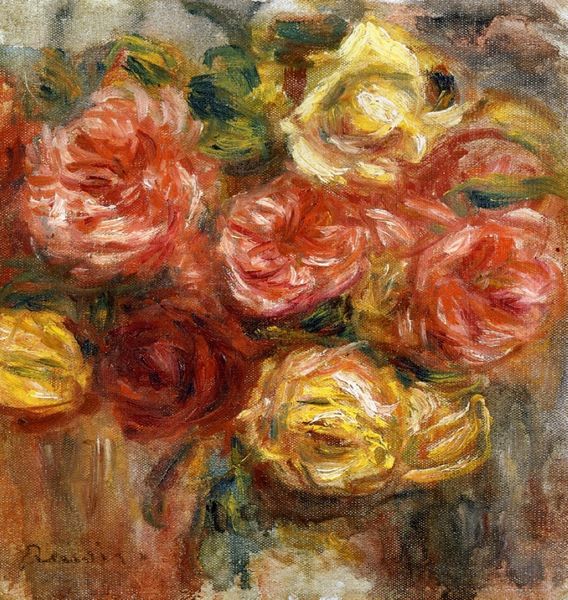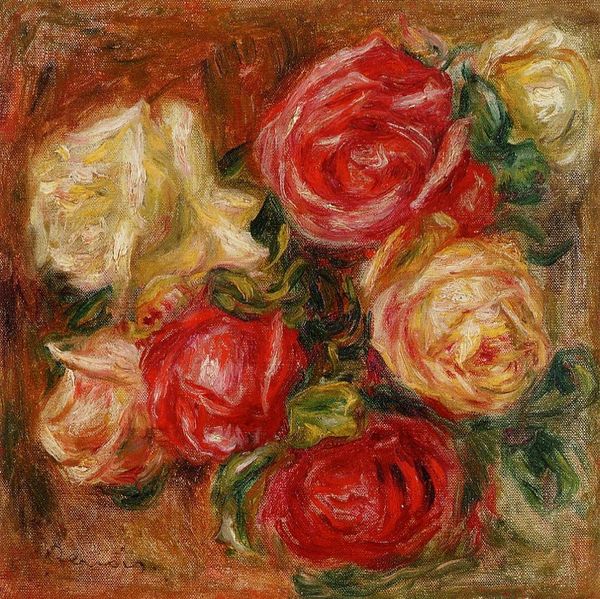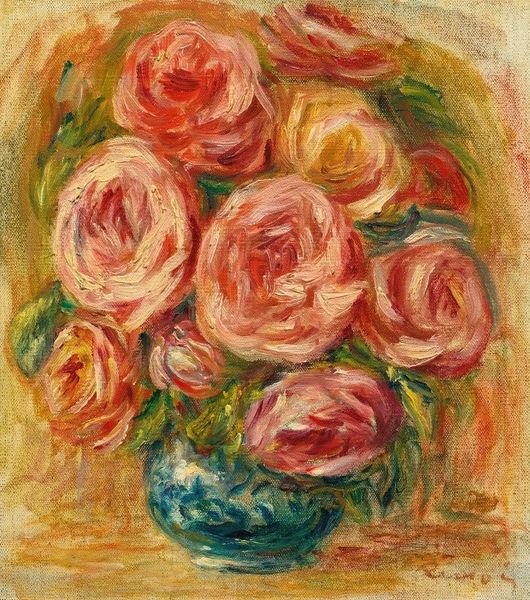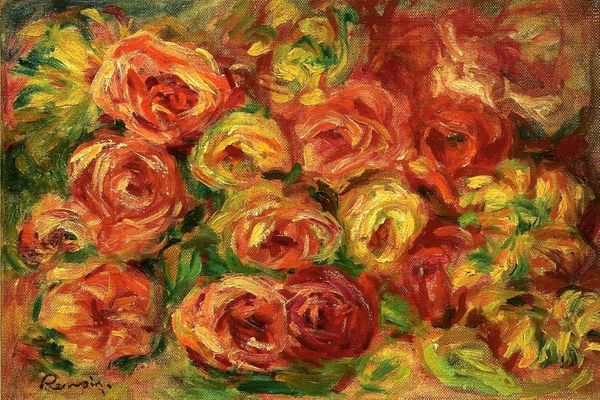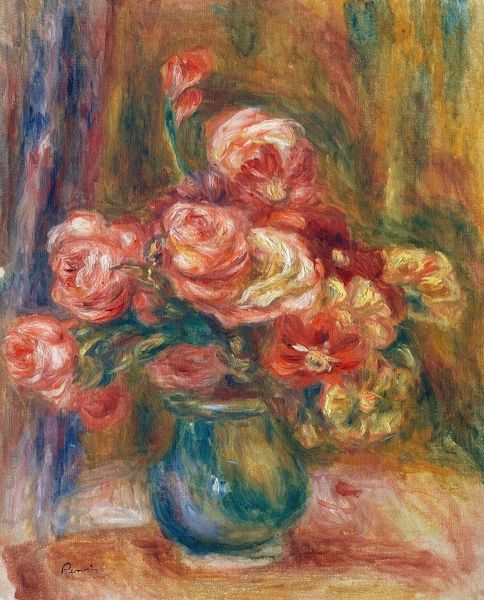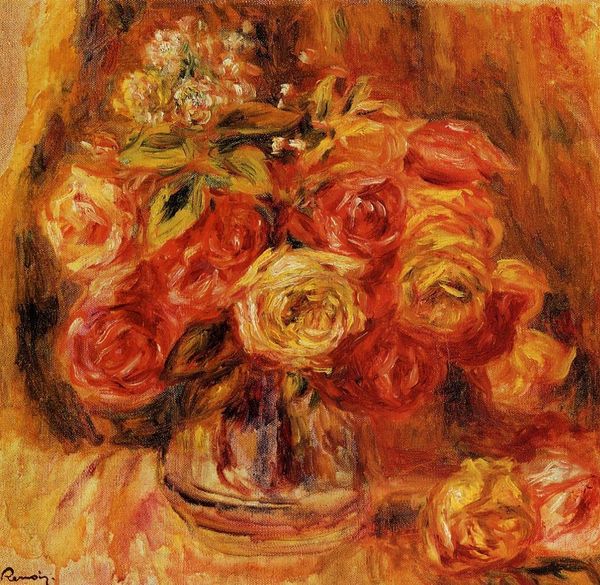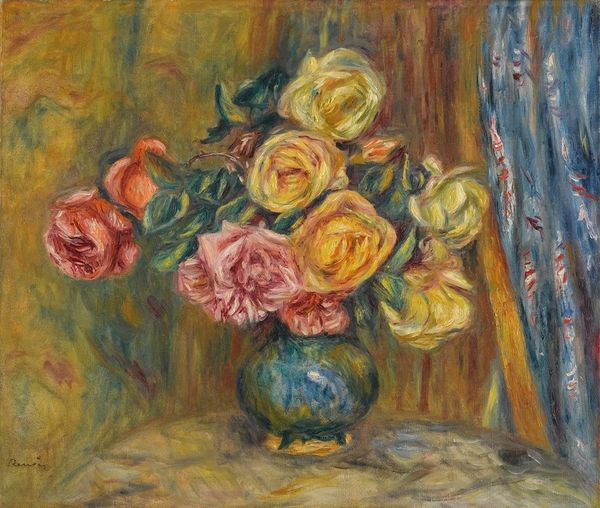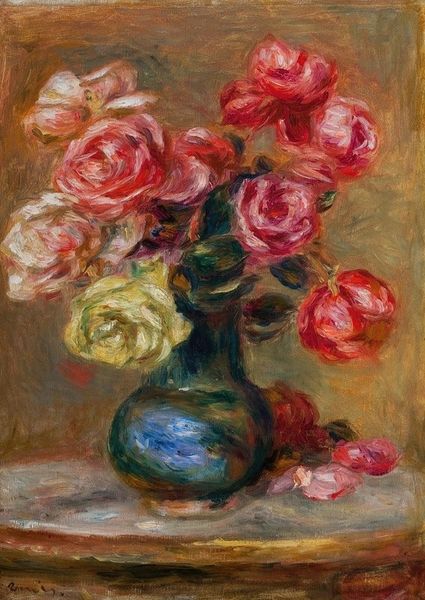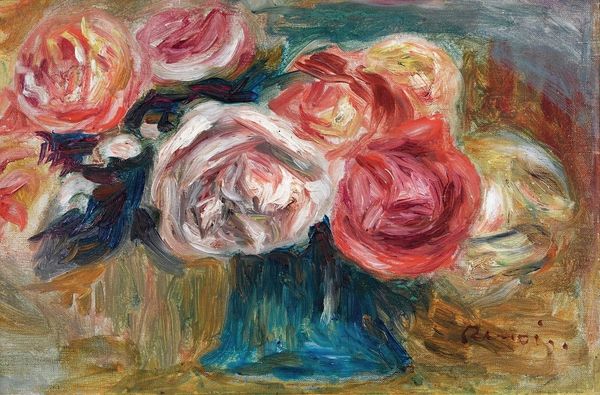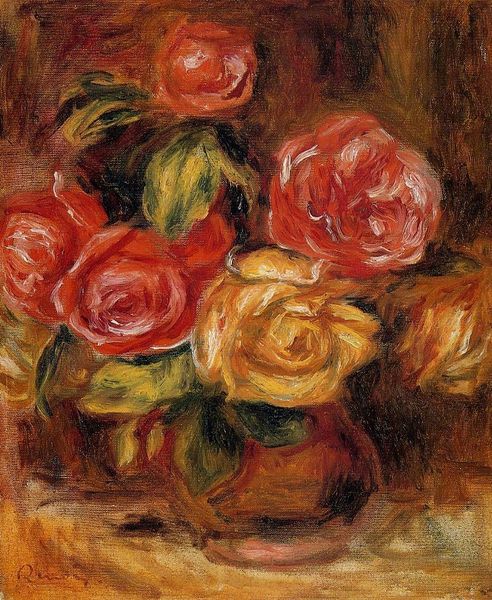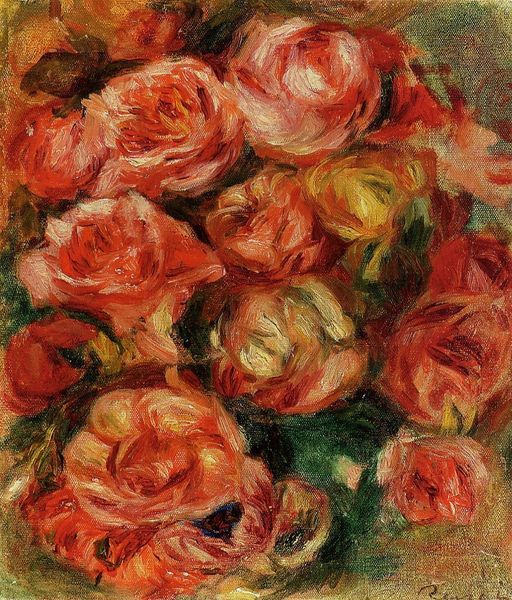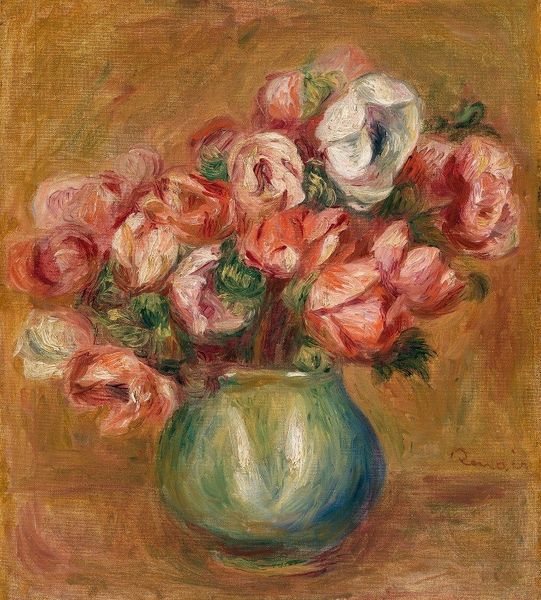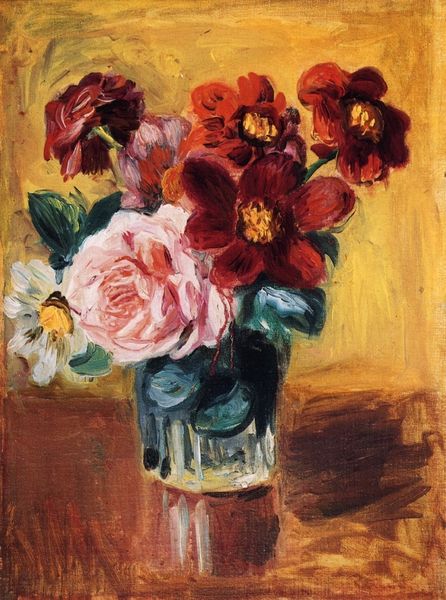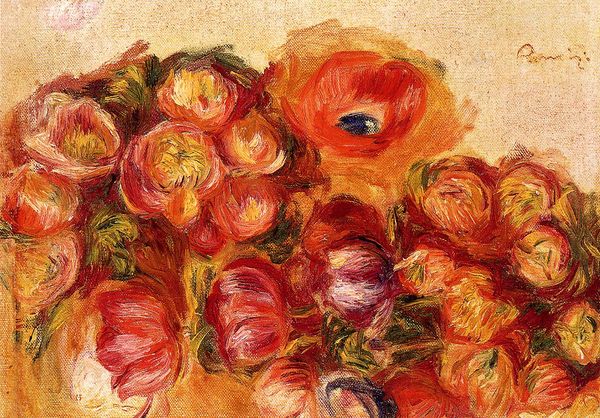
oil-paint
#
still-life
#
impressionism
#
oil-paint
#
oil painting
Dimensions: 35 x 38.2 cm
Copyright: Public domain
Editor: Here we have Renoir’s "Bouquet of Roses in a Green Vase," made using oil paint. The profusion of blossoms gives me a feeling of abundance, and I'm drawn to the varied textures. How do you interpret this work? Curator: This painting is primarily an exercise in color and form. Note how Renoir uses a limited palette, emphasizing the interplay of reds, yellows, and greens. The brushstrokes are loose, almost dissolving the forms into pure pigment. Consider how the overall composition guides the eye. What compositional elements stand out to you? Editor: Well, the way the roses are clustered towards the top and center of the canvas makes the image feel weighty, anchored by the darker green of the vase below. Curator: Precisely. And what about the relationship between the roses and the vase itself? The vase almost disappears, doesn't it? Renoir is more interested in the reflected light on the petals than depicting the solidity of the vase. He deconstructs reality into a symphony of light and color. Editor: That makes a lot of sense. It’s like the vase is only there to serve the greater purpose of reflecting colors into the roses. I hadn’t really considered that before. Curator: Exactly. Form follows function as he emphasizes the flat surface and qualities of paint, more so than representational likeness. By examining the pictorial elements of colour and composition, we come closer to appreciating this work's genius. Editor: Thank you. I will look more at the artist’s approach to forms from now on. Curator: You’re welcome. Looking at a work this way allows us to understand art on its own terms and free of historical conditions.
Comments
No comments
Be the first to comment and join the conversation on the ultimate creative platform.
